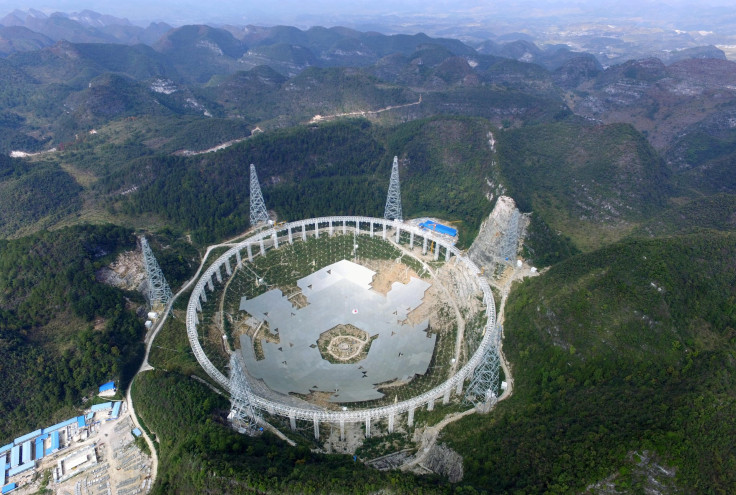China To Relocate Over 9,100 People To Make Way For Giant Alien-Hunting Telescope

China’s ambitious plan to search for alien life would come with a human cost. On Tuesday, the country’s state-run Xinhua News Agency reported that over 9,100 people living in the Guizhou province will be “evacuated” from their homes and relocated to make way for the Five hundred meter Aperture Spherical Radio Telescope (FAST) — the world’s largest radio telescope.
Each of the 9,110 affected residents would be given 12,000 yuan ($1,839) in compensation and some ethnic minority families would get an additional 10,000 yuan ($1,532), Xinhua reported, citing senior Chinese government officials.
According to some estimates, up to 40 million Chinese have been forcibly displaced since the 1970s to make way for various economic development projects. And, in the run-up to the 2008 Beijing Olympics, over 1 million were moved against their will to make way for construction related to the event.
In the past, when Chinese authorities have relocated hundreds of thousands of people to make way for large infrastructure projects such as dams and canals, many have complained of poor compensation.
Chinese officials say FAST’s isolated location — a rock basin in Pingtang County in the Guizhou province — is the ideal place to detect extraterrestrial messages. Li Yuecheng, a senior Communist party official in Guizhou, told Xinhua that the relocations, from an area within a 5 kilometer (3.1 miles) radius of the project, would help “create a sound electromagnetic wave environment.”
Work on the 1.2 billion yuan ($184 million) telescope began in 2011, and is expected to be finished by September. Once the construction is over, the 500 meter-diameter telescope would become the world’s largest radio telescope — dwarfing the 300 meter Arecibo Observatory in Puerto Rico. In the words of Li Di — one of the scientists involved in the project — “if you fill it with wine, every one of the world's seven billion people could get a share of about five bottles.”
“With a larger signal receiving area and more flexibility, FAST will be able to scan two times more sky area than Arecibo, with three to five times higher sensitivity,” Li Di told China Daily in November.
© Copyright IBTimes 2024. All rights reserved.












